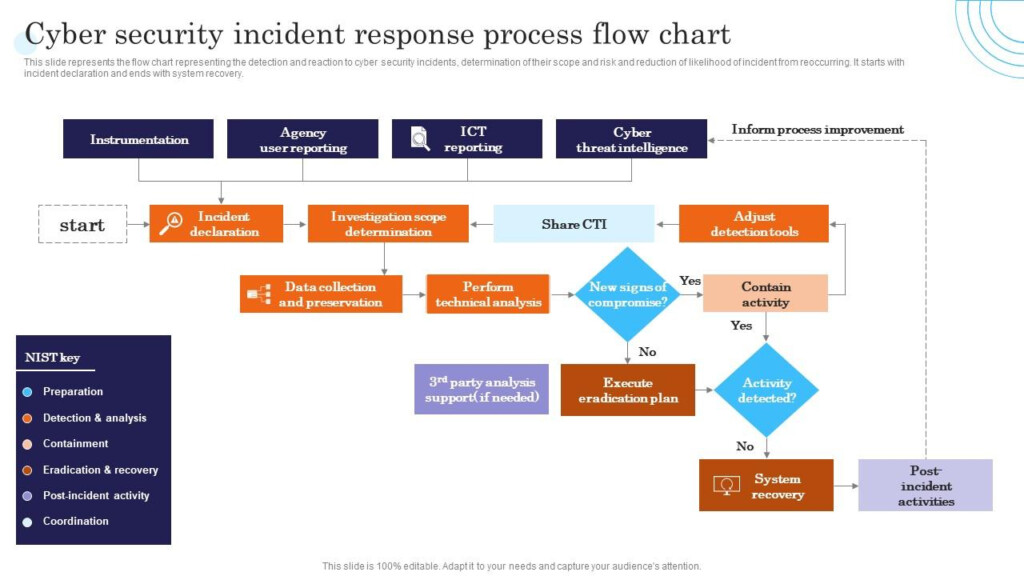When it comes to cybersecurity, having a well-defined incident response plan is crucial for organizations to effectively respond to cyber threats and attacks. A cyber incident response flow chart is a visual representation of the steps that need to be taken in the event of a cyber incident. It provides a clear and structured approach for identifying, assessing, containing, and recovering from a cyber attack.
1. Detection: The first step in the incident response flow chart is the detection of a potential cyber incident. This could be through automated monitoring systems, alerts from security tools, or reports from employees.
Cyber Incident Response Flow Chart
2. Analysis: Once a potential incident is detected, the next step is to analyze the nature and scope of the incident. This involves gathering information, assessing the impact, and determining the severity of the threat.
Benefits of Using a Cyber Incident Response Flow Chart
1. Improved Response Time: Having a predefined flow chart helps in streamlining the incident response process, reducing the time it takes to detect and respond to cyber threats.
2. Consistent Approach: A flow chart ensures that all team members follow the same set of procedures, leading to a consistent and coordinated response to cyber incidents.
